“You cannot force yourself to be the kind of poet that you are not, unless you want to write worse than you would.” Being a creative can be a scary thing. While you are able to freely explore different avenues in your work, there is still a part of you that questions whether the path you have chosen for your creations is the right one, if deviating from the crowd and paving your own path is better. Well, Vahni Capildeo did just that.
For the 22nd Annual Campus Literature Week hosted by MFA students from the Department of Literary, Cultural, and Communication Studies (DLCCS) and MFA Creative Writing Co-ordinator Dr Muli Amaye, the featured writer- in-residence was none other than the brilliant Dr Vahni Capildeo.
Vahni Capildeo’s work explores different languages, places and cultures, crafting poems that are not always limited to the standard structures a poem may be perceived to possess.
Born in Trinidad and Tobago, Capildeo read English Language and Literature, Medieval Studies and Old Norse at Christ Church, University of Oxford. With the help of Fédon Honoré (teacher at the Alliance Française) she obtained a Dalf C-1 diploma to prove they spoke French, which nobody in the UK believed a Trinidadian could do.
Every writer has a unique trait that shines through their work. Capildeo’s poetry has a structure that is bold and immediately striking, mixing language and voices, places and cultures. Breaking the mould of traditional poetry, the poet writes freely and unapologetically, sometimes using all the space on the page to give shape to the words:
“I think the hardest thing is to write poems that don’t fit the structure of your mind. If the structure of your mind doesn’t resemble a conventional poem, then why would you pretend it fits?” For this poet, it is better to be your authentic self.
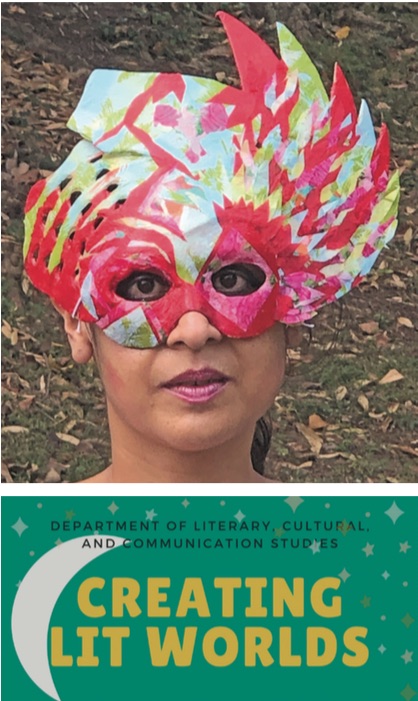
No Traveller Returns is her first book. Capildeo says: “I wrote the kind of book that came out of life experiences, both of encountering life, language and books, and life experiences of just being in the world.”
It reflects on the reality of people through various tones and voices while using surrealism and humour to explore how the reader can understand themselves and others. “I came up with this idea of writing an autobiography which was not about me, but in all different voices of real people and imaginary characters which could reflect experiences that I had had but their concerns wouldn’t be about me,” Capildeo says.
Measures of Expatriation was the novel Capildeo did not want to write. It seemed very similar to No Traveller Returns. Possessing the same tools of surrealism and humour used in that first collection, Measures of Expatriation’s anecdotes and more direct socio-political engagement, create a different tone throughout the various sequences.
While alienation and identity, in these poems Capildeo highlights issues such as the politics of the body, gender inequality, racism, and cultures of sexual objectification. Language becomes that vehicle to voice the sad reality of everyday experience: “It is a much angrier book and it is much more grounded in the detail of every-day life.” Measures of Expatriation went on to win the 2016 Forward Prize for Best Collection, the 2016 Poetry Book Society Choice and was short-listed for the 2016 TS Eliot Prize.
During the gala readings for Campus Literature Week, Capildeo debuted poems from a pamphlet-in-progress, Savannah Sequences, inspired by walks taken with journalist and writer Judy Raymond around the Queen’s Park Savannah and up Lady Chancellor Hill in Trinidad.
The poems, in part, are about walking. People of different backgrounds, genders, or ethnicities may not walk freely outdoors without fear, despite having every right to occupy a public space. The importance of reclaiming public spaces was explored.
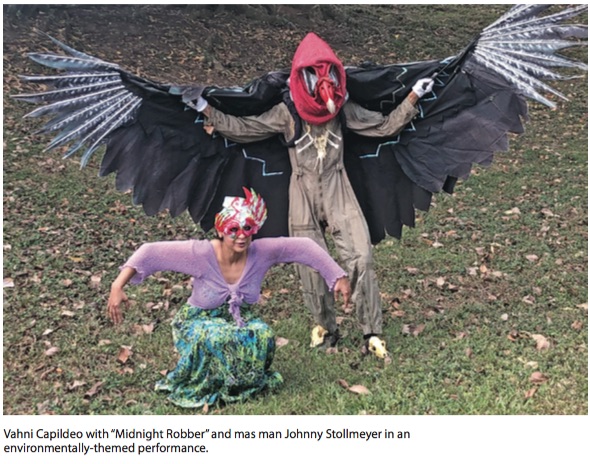
With the outbreak of the pandemic COVID-19, plans for this year’s Campus Literature Week had to be modified. Instead of the traditional structure, MFA students and Dr Amaye, with the help of DLCCS and Mr Rodger McFarlane, shifted the events to an online platform. Indeed, Virtual Campus Literature Week 2020 was a perfect fit for the theme chosen for this year: Creating Lit Worlds.
Given the circumstances and the shift to virtual form, as much of Lit Week as possible was recorded for online viewers.
The crisis influenced Capildeo’s performance: “I made my gala recordings with death in mind and I went through all my books, in order, in a way I’ve never done. I said a little bit about each one. So it’s an archival recording.”
Capildeo felt it was crucial to look to a sustainable, local future, and invited Johnny Stollmeyer to perform on environmental themes as a Midnight Robber, and to introduce the audience to the practice of permaculture at home.
MFA students and prominent writers recorded lunch time readings that were uploaded each day during the week. Talks and performances by two Guyanese writers- in-residence, Scott Ting-A-Kee and Kevin Garbaran, were also uploaded, along with additional readings by Capildeo to accompany a collaboration with Johnny Stollmeyer. As tradition dictates, the week’s events ended with a Gala Ceremony.
Despite a slight disappointment in not being able to experience the buzz that comes with an in-person Campus Literature Week, Dr Amaye, the MFA students, and the DLCCS staff did a spectacular job of creating the virtual edition of Literature Week, while maintaining the excitement and anticipation of each day.
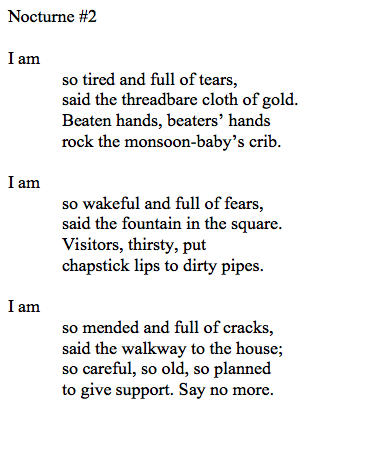
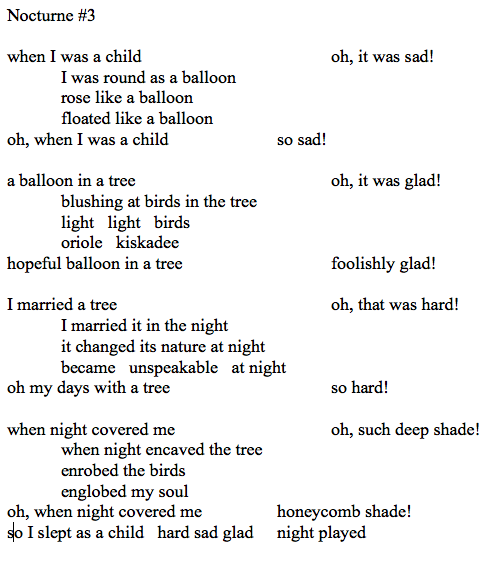
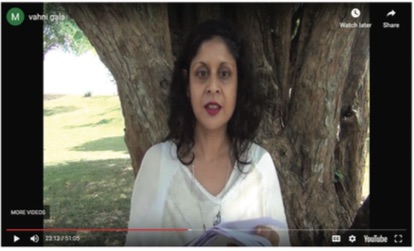
Watch Vahni Capildeo’s Gala Performance and find other Campus Literature Week activities and information at https://sta.uwi.edu/campuslitweek2020/
Some of Vahni Capildeo’s Poetry: https://www.anthropocenepoetry.org /post/3-poems-by-vahni-capildeo